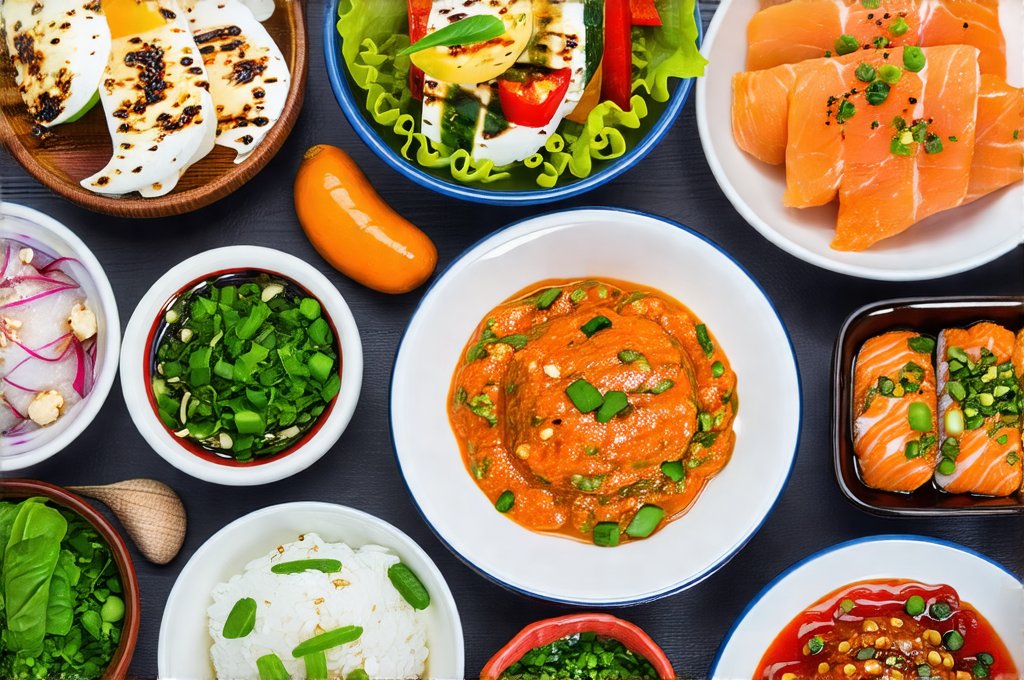Irritable Bowel Syndrome (IBS) impacts millions globally, presenting a unique challenge for those seeking dietary solutions. Traditional dietary recommendations often focus on elimination diets, which can be restrictive and difficult to maintain long-term. However, adopting themed meal plans – built around naturally IBS-friendly food groups – offers a more sustainable and enjoyable approach to managing symptoms. These themes aren’t about strict restriction; they’re about focusing on foods that are generally well-tolerated while allowing for personalization based on individual triggers. Understanding how different cuisines inherently align with low-FODMAP principles, or can be easily adapted to do so, is key to regaining control of your digestive health and enjoying food again.
The beauty of a themed approach lies in its structure and variety. Rather than constantly scrutinizing every ingredient, you’re guided by the core principles of a cuisine known for digestibility. This simplifies meal planning, grocery shopping, and cooking, making it less overwhelming. It also encourages experimentation within safe boundaries, allowing you to discover new favorite dishes that support your well-being. Importantly, remember that IBS is highly individual; what works wonderfully for one person might not work for another. These themed plans are starting points – adaptable frameworks to build a diet tailored specifically to your needs and sensitivities. It’s always best to work with a registered dietitian or healthcare professional to personalize your dietary approach. You may also find helpful information in a 7-day meal plan designed for bloating reduction.
Mediterranean Meal Plan
The Mediterranean diet is often lauded for its health benefits, and it’s remarkably well-suited for many individuals with IBS. Its emphasis on whole foods – fruits, vegetables, lean proteins (fish & poultry), olive oil, and limited dairy – naturally aligns with low-FODMAP principles when thoughtfully implemented. The core of this plan focuses on minimizing potential triggers while maximizing nutrient intake. It’s also inherently anti-inflammatory, which can be beneficial for managing IBS symptoms.
A key aspect is the abundance of monounsaturated fats from olive oil, avocados and nuts – these are generally well-tolerated and contribute to gut health. The plan naturally limits high-FODMAP foods like wheat and excessive lactose, though careful attention must still be paid to portion sizes and individual tolerances. For instance, while tomatoes are often considered safe, large quantities can trigger symptoms in some individuals. Similarly, onions and garlic – staples of Mediterranean cuisine – require mindful substitution or exclusion for those sensitive to fructans.
Adapting the Mediterranean diet for IBS requires a few key adjustments. Replacing wheat with gluten-free alternatives like quinoa or rice is common. Using garlic-infused olive oil instead of raw garlic provides flavor without the FODMAPs. Focusing on lactose-free dairy options or plant-based alternatives (almond milk, coconut yogurt) helps manage lactose intolerance. The emphasis should always be on fresh, whole ingredients and mindful portion control. Recipes can include grilled fish with roasted vegetables drizzled in olive oil, lentil soup with spinach and carrots, or a salad featuring cucumber, tomatoes, feta cheese (lactose-free if needed), and olives. Those looking for more targeted plans may benefit from exploring a vegan meal plan focused on gut health.
Asian-Inspired Meal Adaptations
Asian cuisine presents a bit more complexity for IBS management due to frequent use of garlic, onions, and wheat-based sauces. However, many variations can be made to create delicious and gut-friendly meals. Japanese, Thai, and Vietnamese cuisines offer particularly good starting points, as they often utilize rice noodles, fresh herbs, and lean proteins. The key is mindful ingredient selection and skillful substitution.
Soy sauce, a common ingredient in Asian cooking, contains wheat in many brands. Choosing gluten-free tamari provides a flavorful alternative. Similarly, traditional stir-fries often rely on garlic and onion; these can be replaced with ginger, lemongrass, or asafoetida (hing) to achieve similar flavor profiles without the FODMAPs. Rice noodles are generally well-tolerated, but it’s important to check labels for added wheat starch. Furthermore, portion control is vital when incorporating spicy ingredients, as capsaicin can sometimes exacerbate IBS symptoms in certain individuals.
Consider these adaptations: a Vietnamese pho using rice noodles, chicken broth (low-FODMAP), and plenty of fresh herbs like mint and cilantro; a Thai green curry made with coconut milk, chicken or tofu, bamboo shoots, and jasmine rice; or a Japanese miso soup featuring seaweed, tofu, and scallions. These dishes emphasize flavor without relying on common IBS triggers. Remember to focus on steaming, grilling, or stir-frying methods rather than deep frying, which can be harder to digest. Individuals with more complex conditions might find relief through a post-birth control reset meal plan.
Building Your Own IBS-Friendly Plan
Creating a sustainable meal plan requires more than just identifying suitable cuisines; it’s about understanding your personal sensitivities and building flexibility into the system. Start with a food diary to pinpoint specific triggers – this is arguably the most important step. Track what you eat, when you eat it, and any associated symptoms. This provides valuable data for tailoring your dietary approach.
Next, focus on portion control. Even low-FODMAP foods can cause issues in large quantities. The Monash University FODMAP app is an invaluable resource for determining safe serving sizes. Don’t be afraid to experiment with substitutions – there are countless alternatives available for common IBS triggers. For example, garlic and onion can often be replaced with asafoetida or chives.
Finally, remember that stress management plays a crucial role in managing IBS symptoms. Incorporating mindfulness practices, regular exercise, and sufficient sleep will support overall gut health and improve your response to dietary changes. A well-rounded approach – combining thoughtful meal planning with lifestyle modifications – is the key to long-term success and improved quality of life. Don’t strive for perfection; aim for progress and listen to your body’s signals. For those needing a more structured plan, consider this meal plan for IBS.




